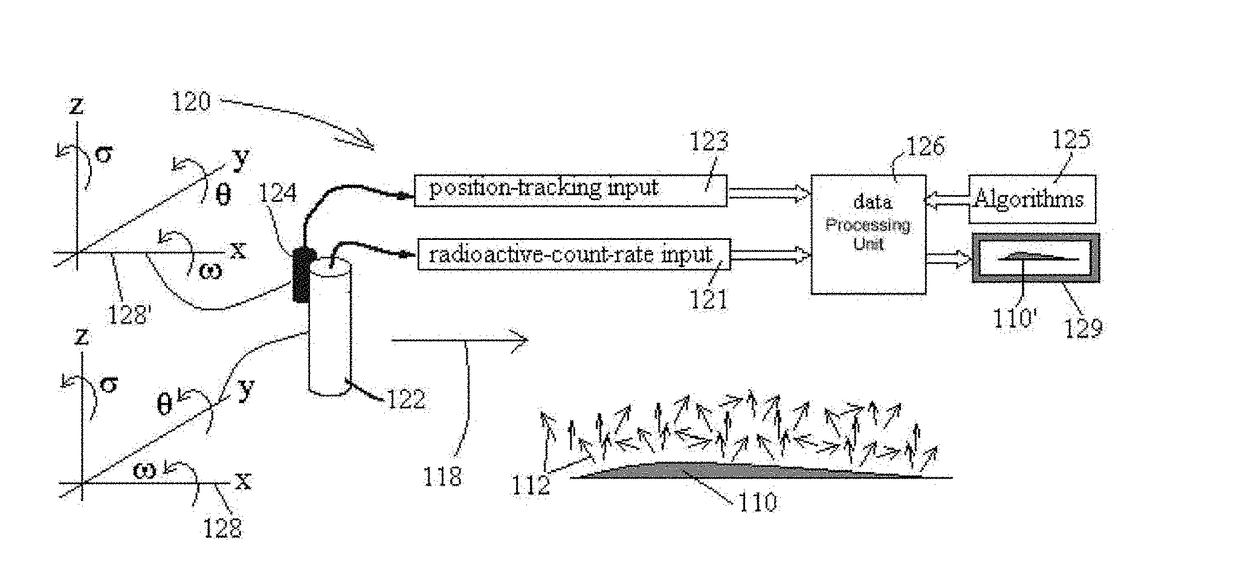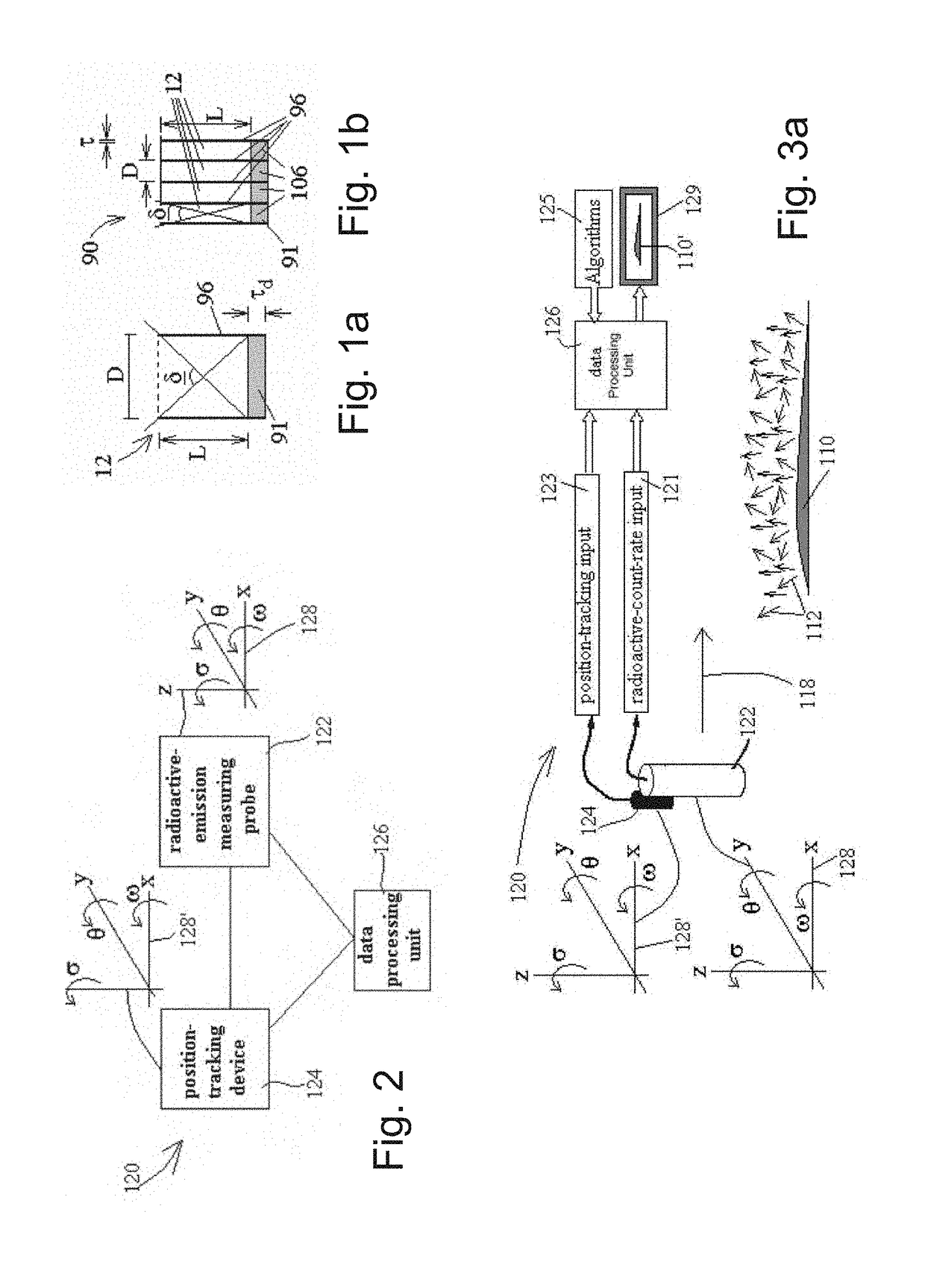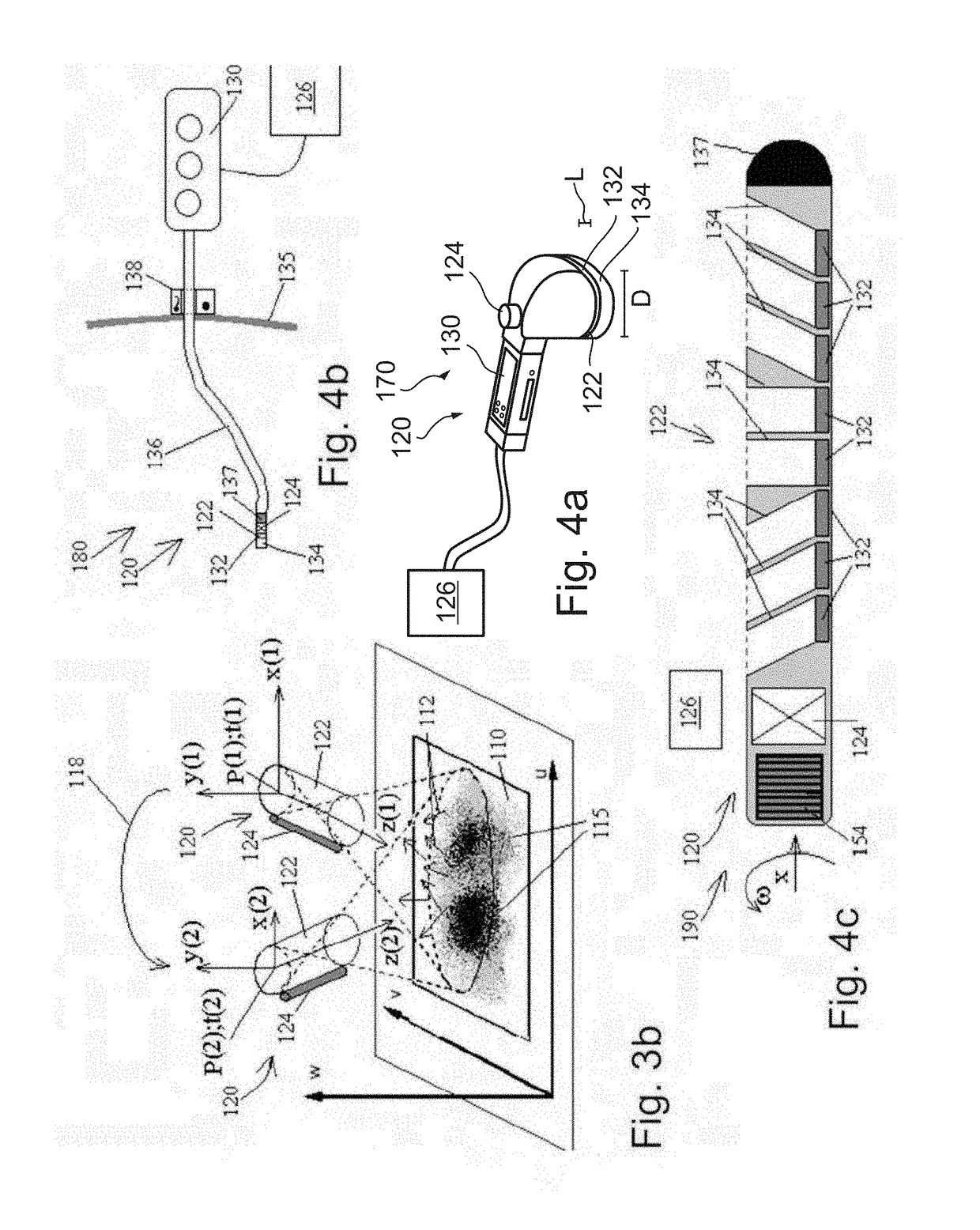Radioimaging using low dose isotope
a radio-isotope and low-dose technology, applied in the field of nuclear imaging, can solve the problems of not providing spectral information for pet imaging, not distinguishing between radio-isotopes, etc., and achieve the effects of preventing saturation, movability of detecting units, and unprecedented sensitivity
- Summary
- Abstract
- Description
- Claims
- Application Information
AI Technical Summary
Benefits of technology
Problems solved by technology
Method used
Image
Examples
example 1
[0390]Referring further to the drawings, FIGS. 18A and 18B schematically illustrate the radioactive-emission camera 10, of the single detecting unit 12 (see FIGS. 1A and 17A). The single detecting unit 12 has a motion with respect to the overall structure 20, which is a combination of a rotational motion around the x-axis, in the direction of ω, denoted by an arrow 44, and a translational motion along the x-axis, denoted by an arrow 46.
[0391]As a consequence, a spiral trace 48 is formed, for example, on an inner surface of a body lumen 232, as seen in FIG. 18B.
[0392]Preferably, the motions of the detecting unit 12 are contained within the overall structure 20, so that the external surface of the camera 10 remains stationary. The external surface of the camera may be formed of a carbon fiber, a plastic, or another material, which is substantially transparent to nuclear radiation.
example 2
[0393]Referring further to the drawings, FIGS. 18C and 18D schematically illustrate the radioactive-emission camera 10, of the single block 90 (FIGS. 1B and 17E). Note that all the detecting units 12 of the single block 90 move as a single body. The single block 90 has a motion with respect to the overall structure 20, which is a combination of the rotational motion around the x-axis, in the direction of ω, denoted by the arrow 44, and the translational motion along the x-axis, denoted by the arrow 46.
[0394]As a consequence, a plurality of spiral traces 49 is formed, for example, on an inner surface of a body lumen, as seen in FIG. 18D.
[0395]Preferably, the motions of the block 90 are contained within the overall structure 20, so that the external surface of the camera 10 remains stationary, wherein the external surface of the camera is substantially transparent to nuclear radiation.
example 3
[0396]Referring further to the drawings, FIGS. 19A-19E schematically illustrate the radioactive-emission camera 10, of the single block 90 of a plurality of the detecting units 12.
[0397]For understanding the motion of the camera 10 of the present example, it is desirable to define a cylindrical coordinate system of a longitudinal axis, x, and a radius r, wherein the motion around the longitudinal axis, x, is denoted by ω, while the motion around the radius r is denoted by φ.
[0398]The single block 90 has a motion with respect to the overall structure 20, which is performed in steps, as follows:
[0399]i. the windshield-wiper like oscillatory motion, around the radius r, in the direction of ±ϕ, as denoted by the arrow 50;
[0400]ii. the translational motion along the x-axis, by an amount Δx, to a new measuring position, as denoted by the arrow 46;
[0401]iii. after traversing the length of the camera, a rotational motion around the x-axis, in the direction of ω, by an amount Δω, as denoted ...
PUM
 Login to View More
Login to View More Abstract
Description
Claims
Application Information
 Login to View More
Login to View More - R&D
- Intellectual Property
- Life Sciences
- Materials
- Tech Scout
- Unparalleled Data Quality
- Higher Quality Content
- 60% Fewer Hallucinations
Browse by: Latest US Patents, China's latest patents, Technical Efficacy Thesaurus, Application Domain, Technology Topic, Popular Technical Reports.
© 2025 PatSnap. All rights reserved.Legal|Privacy policy|Modern Slavery Act Transparency Statement|Sitemap|About US| Contact US: help@patsnap.com



